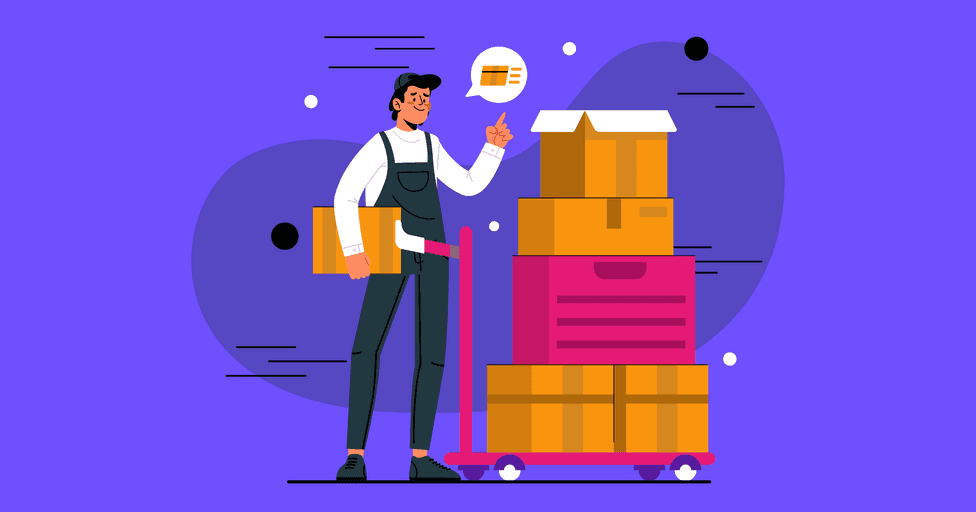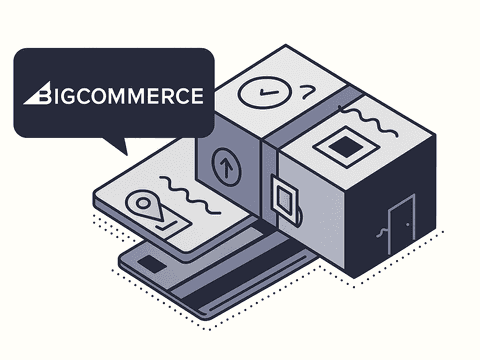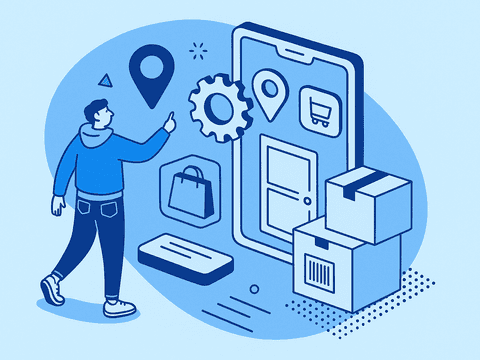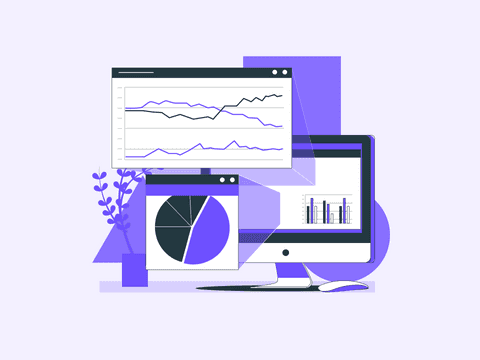Looking for a retail fulfillment solution?
If you're considering outsourcing your fulfillment operations, it's crucial to explore all your options carefully.
Retail fulfillment services can be costly, and selecting the wrong one could impact both your finances and customer satisfaction.
But today, eCommerce and retail businesses have alternatives beyond traditional fulfillment services—dedicated order fulfillment software.
To help you make the best choice, we've compiled a list of the top services, companies, and software solutions for managing retail fulfillment and supply chain orders.
Differences between a retail fulfillment solution and a traditional service
Unlike traditional services, a retail fulfillment solution leverages advanced technology for a faster, smarter approach.
It seamlessly integrates with multiple sales channels, automates routine tasks, and provides real-time tracking, making it more dynamic and scalable.
Traditional fulfillment often relies on manual work, which can slow down response times and lacks the flexibility needed for managing large or multi-channel orders.
Best fulfillment solutions and companies for retail
1. Outvio
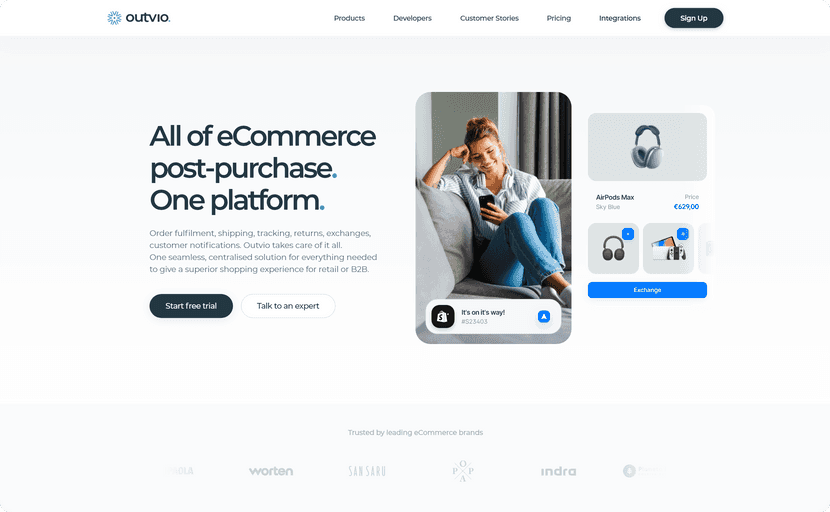
Outvio is a software specialized in automating fulfillment processes for retail and eCommerce businesses. With Outvio, you can optimize order preparation, connect with carriers worldwide, enable a fully automated returns flow, and guarantee the best post-sale experience for your customers, among many other features. The platform is designed so that you can put your business logistics on autopilot, significantly reducing operating costs.
Why choose Outvio? As one of the best eCommerce online platforms, its fees are significantly lower than those of a physical service, making it the most cost-effective option.
2. Amazon FBA
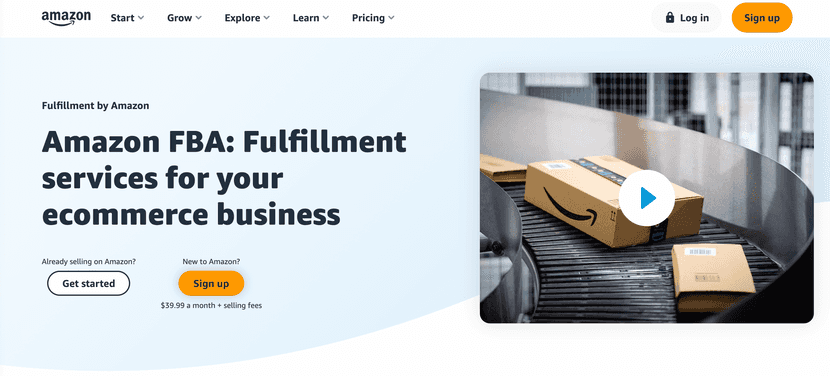
Amazon FBA is one of the most popular fulfillment services, especially designed for sellers operating on the Amazon platform. This service takes care of the entire warehousing, packaging, shipping, and customer service process for orders placed through Amazon. An outstanding advantage is that FBA products automatically qualify for Amazon Prime.
3. ShipBob
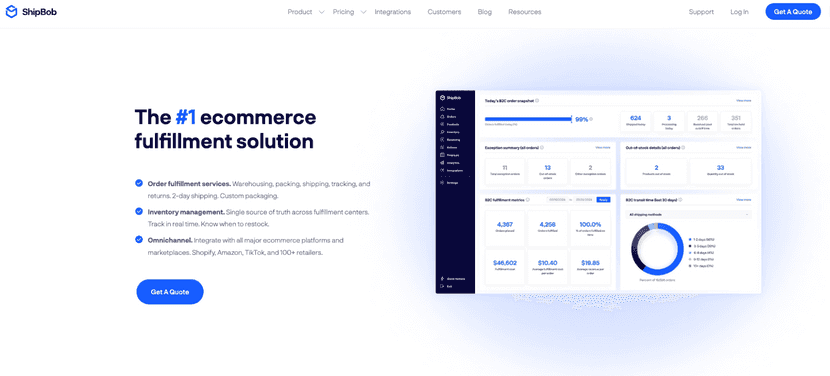
ShipBob is a company that offers fulfillment, warehousing, storage, packaging, and inventory management services. You can send your products to their warehouses, and they will handle the order preparation for you. It's a good option for retailers without their own infrastructure who want to streamline order processing. They also offer picking and packing software. However, if you already have warehouses, it may not be the most attractive option.
4. ShipCalm
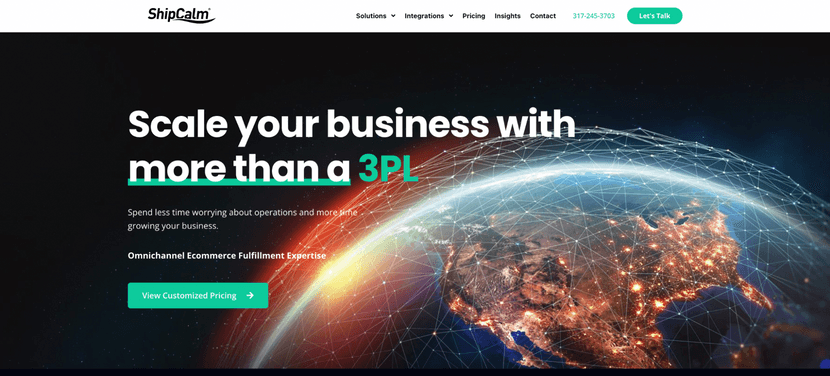
ShipCalm provides fulfillment services adapted to all types of retail and online stores. The company handles picking and packing, and warehouse management. It also takes care of order assembly and carrier handling. However, if you manage your own warehouses, it is more advisable to use a fulfillment management platform for eCommerce.
5. ShipMonk
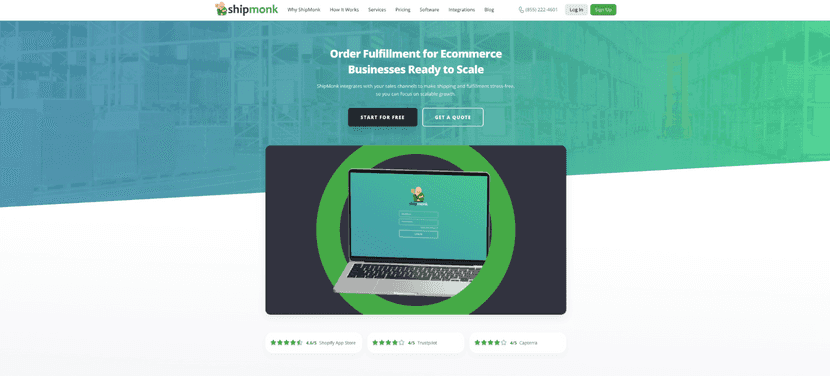
ShipMonk offers tailor-made solutions that scale with business needs. Their services include inventory management, customized packaging, and international shipping. ShipMonk has a strong presence in Europe, offering services for retail, online stores, and B2B.
6. Sherpack
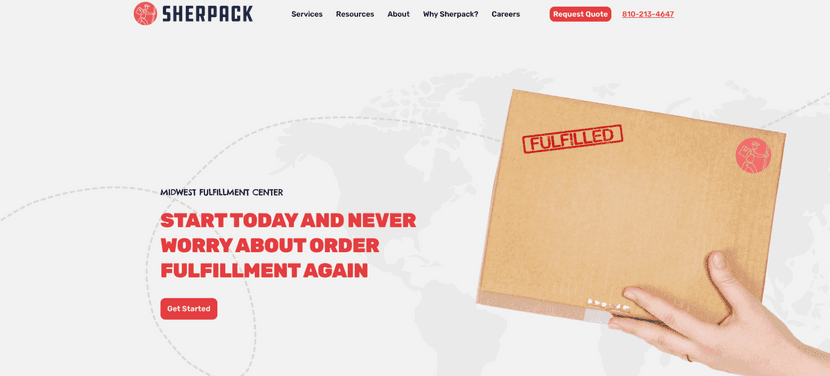
SherPack is less known in the fulfillment landscape but offers interesting solutions, including customized warehousing, packing, and shipping services. It is a good choice for companies that need a more personalized and less ‘industrialized’ service. Sherpack also offers relabeling and repackaging services in reverse logistics.
7. Fulfillrite
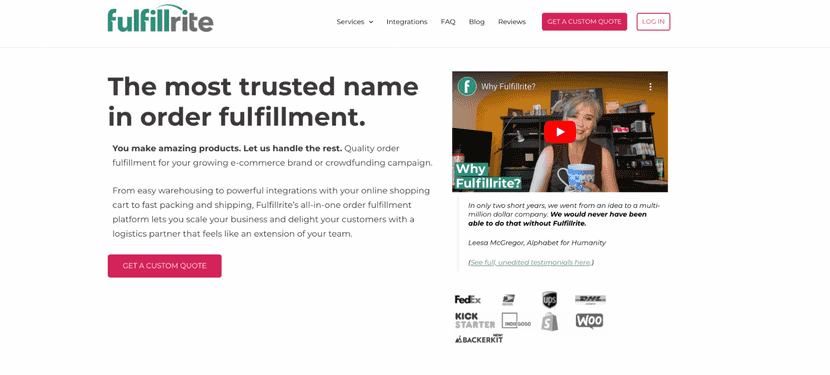
Fulfillrite offers fast and reliable fulfillment services, ideal for small and medium-sized businesses, both in retail and eCommerce. They provide outsourced services for kitting, order fulfillment, packaging, and even subscription boxes. They also have an exclusive service to assist crowdfunding campaigns.
What do retail fulfillment services do?
Retail fulfillment services are integral to the operations of retail businesses, managing everything from storage to delivery of products. They begin by receiving and storing inventory in warehouses, ensuring items are well-organized and easily accessible.
When orders are placed, these services pick, pack, and ship products directly to customers. They also handle logistics like choosing shipping methods and processing returns, ensuring items are returned to stock if undamaged.
Why is retail fulfillment software cheaper than outsourcing services?
The main advantage of using fulfillment software instead of a physical service is the elimination of the need for external labor. These logistics automation tools are specifically designed to optimize time-consuming manual tasks. By improving picking, packing, and transport management processes, reliance on retail fulfillment services is significantly reduced. That's why 40% of retailers use their own in-house fulfillment process.
Therefore, before opting for such a company, it is recommended that you evaluate an eCommerce fulfillment platform first. If you determine that the tool adequately meets your logistics needs, you could achieve considerable savings compared to hiring a physical fulfillment service.
6 signs that you should use a retail fulfillment service
If you are considering using fulfillment software or outsourcing, it is likely because your current operations are not efficient enough. Inefficiencies can lead to increased costs and customer dissatisfaction, which can hinder your business growth.
Here are some signs that might suggest the need to use fulfillment software such as Outvio:
- High order volumes: Managing high shipment flows is challenging and can create bottlenecks that slow down your entire operation. Efficient software can streamline this process, ensuring timely deliveries and satisfied customers.
- High return volumes: Returns management is a crucial aspect for any business or retailer. Ensuring a smooth and efficient returns process will help you minimize operational costs and maintain customer satisfaction, which is vital for brand loyalty.
- Long fulfillment time: A long fulfillment time can negatively impact the customer experience and the competitiveness of your business. Reducing fulfillment time is essential to meet shopper expectations, increase retention rates, and maintain a competitive edge in the market.
- Lack of warehouse space: Poor inventory management can quickly deplete internal storage resources, limiting your ability to grow your business. Utilizing fulfillment software can optimize space usage and inventory management, facilitating business expansion.
- International expansion: Entering new international markets presents unique logistics challenges, such as navigating customs regulations, import tariffs, and managing multinational inventory. Fulfillment software can simplify these complexities, making international expansion more manageable.
- Complex orders: Managing logistics for complex orders involves difficulties such as SKU control, merchandise verification, and quality control. Fulfillment software can streamline these processes, ensuring accuracy and efficiency, and ultimately enhancing customer satisfaction.
"At Bulevip we have more than 250,000 references and 1,300 brands. In addition, buyers abroad are growing gradually. This forces us to constantly integrate and manage new couriers. Outvio works as a dashboard from which to manage logistics operations, automate orders, returns, track deliveries, etc. In short, we are autonomous and efficient" Cristina Moreno, Quality and Logistics Manager
What is the difference between retail and B2B fulfillment services?
The distinction between retail and B2B fulfillment lies in the nature of the shipments, their final destination, as well as the scale and logistics involved. B2B fulfillment focuses on the distribution of large volumes of products between companies, such as moving goods from a manufacturer to a retail shop. In contrast, retail fulfillment is geared towards placing products in retail outlets destined for the end consumer, encompassing both physical shops and e-commerce platforms.
However, in terms of logistics management, both aspects require the support of specialized fulfillment services or platforms. In fact, even companies that specialize in logistics outsourcing rely on 3PL software such as Outvio to ensure that orders are fulfilled on time.
Whether you are a retailer, e-retailer, or B2B company, tools like Outvio can help you process your shipments efficiently and optimize your logistics costs.

